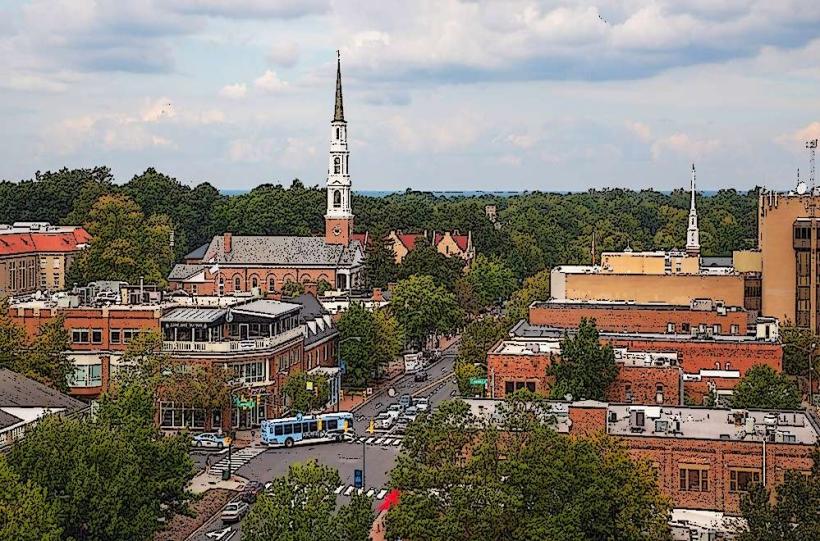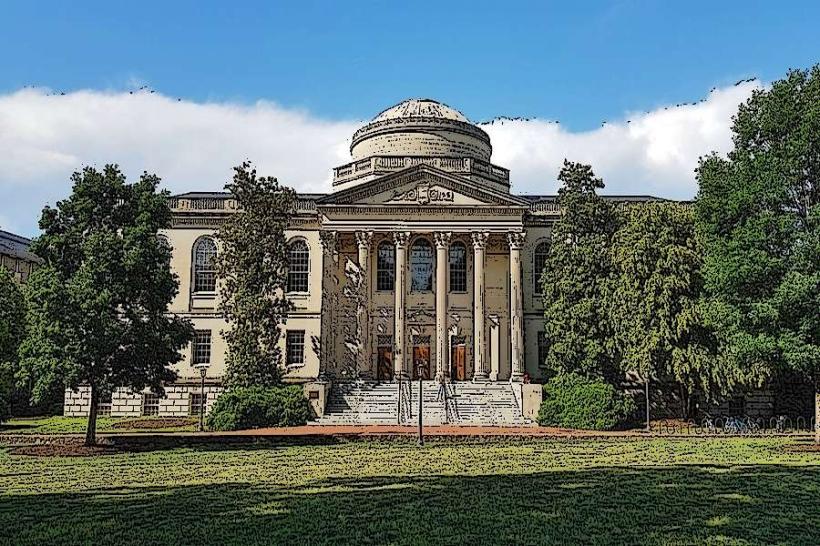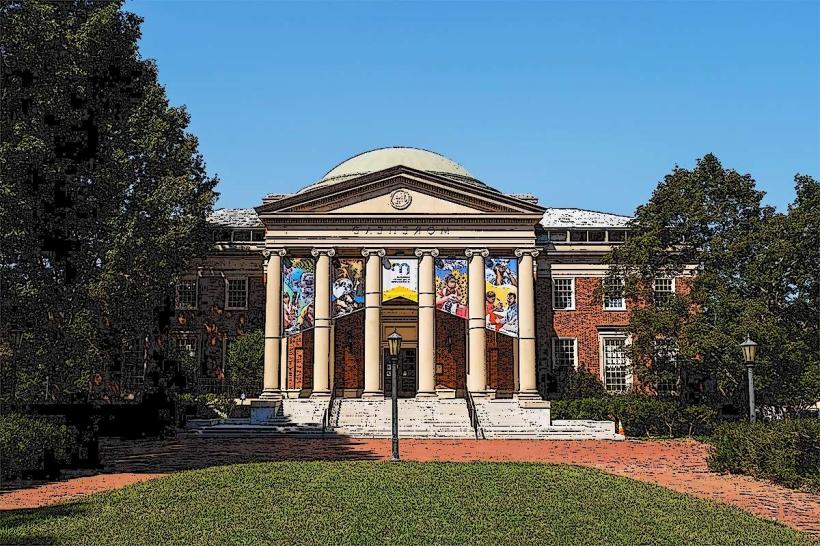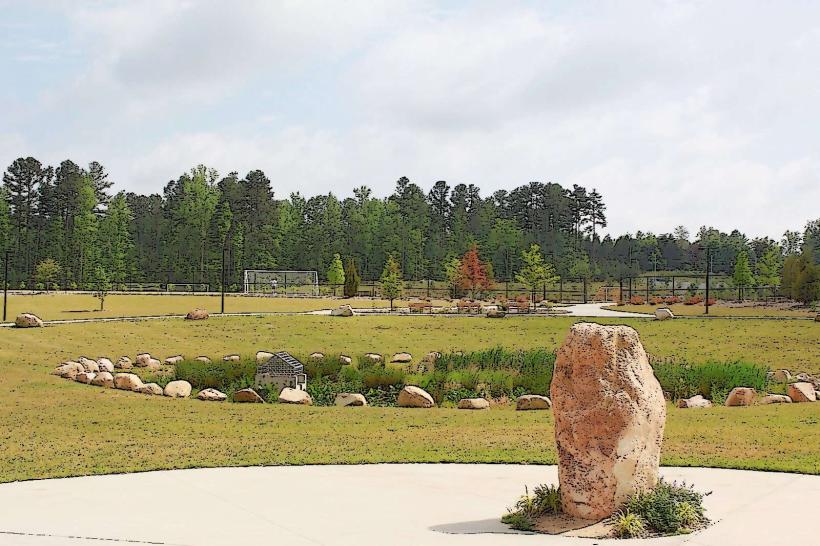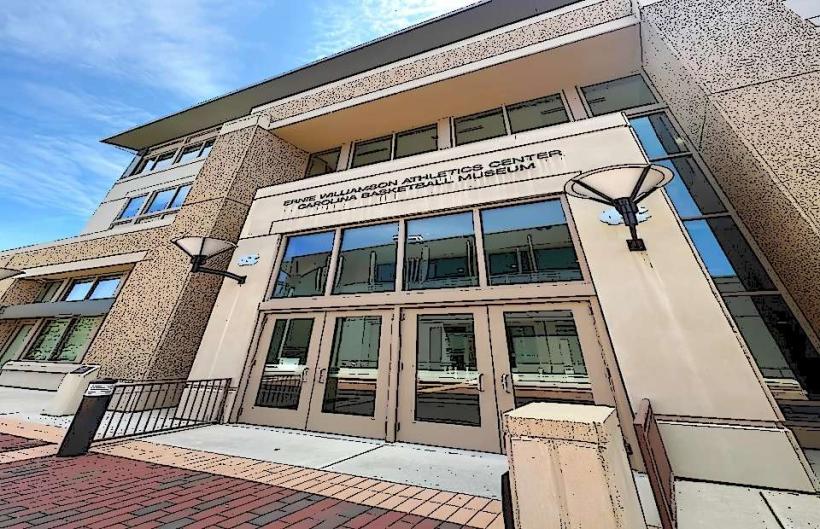Information
City: Chapel HillCountry: USA North Carolina
Continent: North America
Chapel Hill, USA North Carolina, North America
Chapel Hill serves as a primary anchor of the Research Triangle and is the home of the University of North Carolina at Chapel Hill, the first public university in the United States. It is situated in Orange County, approximately 45 km northwest of Raleigh and 20 km southwest of Durham.
Historical Timeline
Founded in 1793 to serve the university, Chapel Hill was named after the New Hope Chapel that stood upon its hill. Primary governance eras include the 19th-century establishment of the town around the academic core, the post-Civil War occupation by Union forces, and the 20th-century transition into a global leader in higher education and research. A critical historical event was the 1898 naming of the town's main thoroughfare after Benjamin Franklin.
Demographics & Population
The population is approximately 64,000. The demographics are White (67%), Asian (13%), Black or African American (11%), and Hispanic or Latino (7%). The median age is 25.8 years, heavily weighted by the student population.
Urban Layout & Key Districts
The city is organized on a radial system centered on the intersection of Franklin and Columbia Streets. Downtown is the center for dining, independent retail, and student nightlife along Franklin Street. The UNC Campus is divided into the historic North Campus and the modern South Campus. Carrboro, a contiguous independent town to the west, serves as the "free-spirited" alternative hub. Meadowmont and The Oaks are high-density, upscale residential and mixed-use districts to the east.
Top City Landmarks
The Old Well (Neoclassical rotunda and university symbol)
Morehead Planetarium and Science Center
The Carolina Inn (1924 Colonial Revival landmark)
Transportation Network
Movement is serviced by Chapel Hill Transit, which is notable for being fare-free for all users. The city is a major stop on the GoTriangle regional bus network. Raleigh-Durham International Airport (RDU) provides air transit. Ride-sharing via Uber and Lyft is the dominant form of motorized transit for the non-local population. Traffic density is high, particularly on NC-54 and US-15-501 during peak university commute times.
Safety & "Red Zones"
The general safety level is high. Caution is advised at night in specific areas of North Chapel Hill and neighborhoods bordering the MLK Jr. Blvd corridor, which experience slightly higher rates of property crime, primarily vehicle break-ins. Common scams involve fraudulent off-campus housing listings targeting new international students.
Digital & Financial Infrastructure
Internet speeds average 350 Mbps with near-universal fiber-optic availability via Google Fiber, AT&T, and Spectrum. Main mobile carriers are Verizon, AT&T, and T-Mobile. Card acceptance is universal. ATMs are ubiquitous in the downtown core and within the UNC Student Union.
Climate & Air Quality
Temperatures range from -1°C to 11°C in winter and 21°C to 32°C in summer. Air quality is consistently high. Specific weather risks include extreme spring pollen levels and infrequent but disruptive ice events in winter.
Culture & Social Norms
The standard tipping percentage is 18–25%. A handshake is the standard greeting. Dress codes are casual ("Collegiate-Casual") but transition to "Southern Professional" in academic or business settings. Smoking is prohibited in all public indoor spaces and on the entire UNC campus. The city is defined by its "Carolina Blue" aesthetic and intense devotion to collegiate athletics.
Accommodation Zones
Franklin Street: Recommended for walking access to the university, nightlife, and historic sites.
NC-54 / I-40 Corridor: Recommended for national hotel chains, ease of access to the Research Triangle Park, and business travelers.
Local Cost Index
1 Espresso: $4.75 (USD)
1 Standard Lunch: $17.00 (USD)
1 Transit Fare: $0.00 (Fare-free local service)
Nearby Day Trips
Jordan Lake State Recreation Area (25 km)
Durham / Duke University (20 km)
Raleigh / State Capitol (45 km)
Hillsborough Historic District (20 km)
Facts & Legends
Chapel Hill is the birthplace of the modern "college town" concept in the U.S. Historically, it was the location where Michael Jordan played his collegiate career before entering the NBA. A local legend involves the "Gimghoul Castle," a 1920s stone structure built by a secret society; it is said to be haunted by the ghost of Peter Dromgoole, a student who allegedly died in a duel on the site in 1833.

